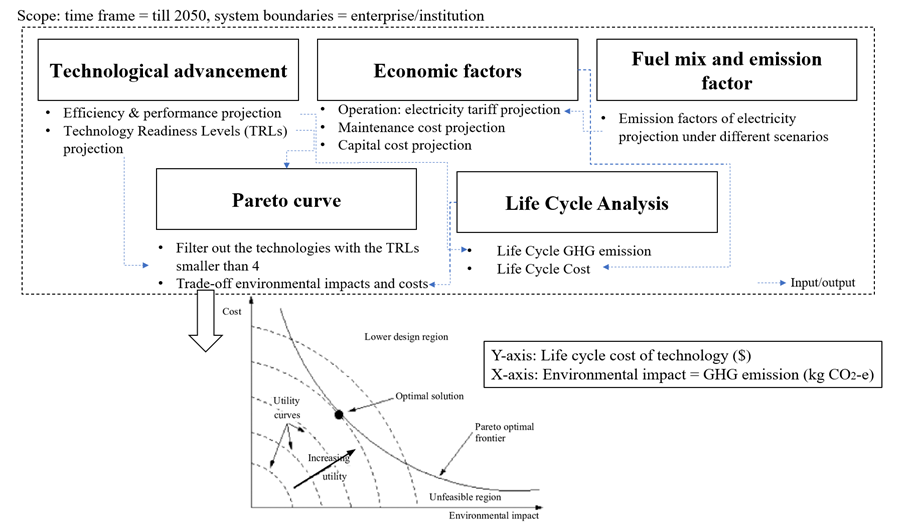
Figure 1 Carbon Neutrality Index
This project shifts organizations’ carbon neutrality commitment into a tangible carbon neutrality plan to accelerate the attainment of net-zero carbon emissions in Hong Kong. This study devised a quantitative assessment tool, namely the "Carbon Neutrality Index", to evaluate the performance of commercial and institutional organizations in terms of the degree of success in achieving their carbon neutrality target. This tool is essential for carbon management to help fulfil the net-zero commitment. The tool adopts a Life Cycle-based Techno-Environmental-Economic assessment framework to compare the trade-offs between environmental benefits and economic cost, generating a list of optimal cost-effective abatement measures. This list could then be a guide for an organization to adjust its long-term implementation plans. Fuel mix, electricity tariff and technological advancements are being studied to further refine the assessment tool and framework. The fuel mix is correlated with emission factors, which are being projected according to the government and utilities' plan, resource limitation, historical information and energy demand, and electricity emission factors. Electricity tariffs are also influenced by the fuel mix trend and the Levelized Cost of Energy projection, which will affect the life cycle abatement costs. Meanwhile, technological advancement of coolers and solar modules are being studied to discover the technological breakthrough and improvement rate, which assist in analyzing the optimal performance of Energy Management Opportunities. Integrating results from the pilot test, an organization could lift its abatement performance score from 23.3% to 100% by accepting the suggestions from the Carbon Neutrality Index, which proves that the quantification tool could considerably enhance an organization’s abatement plan performance. The ideal greenhouse gas reduction could reach an annual 15.21 million tons of CO2-e when all potential customers in Hong Kong participate in the Carbon Neutrality Index scheme.